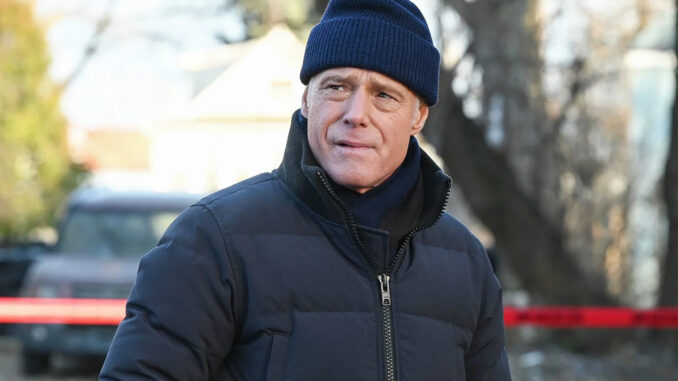
The world of procedural television thrives on consistency, familiar faces, and a comfortable sense of order. When that order is disrupted, particularly by a “very special episode” that tackles difficult or sensitive themes, the ripple effects can be profound, both on-screen and off. In the case of Chicago P.D., a show known for its gritty realism and complex characters, a particularly impactful episode starring Patrick John Flueger (Officer Adam Ruzek) elicited strong reactions, including some insightful commentary from co-star Jason Beghe (Sergeant Hank Voight). While fictionalized, the dynamics and potential responses within a cast and crew in such a situation are compelling to explore.
The Weight of the Story: Ruzek’s Burden
Imagine an episode centered on Ruzek grappling with a deeply personal issue – perhaps childhood trauma resurfacing during a case, or a moral dilemma forcing him to confront uncomfortable truths about the system he serves. Such a storyline would demand a nuanced and vulnerable performance from Flueger, pushing him beyond the usual boundaries of his character. This is where Beghe’s potential perspective becomes interesting. As Voight, the often-morally-grey leader of Intelligence, Beghe embodies a hardened exterior masking layers of complexity. His assessment of Flueger’s portrayal of Ruzek could stem from several angles:
- Admiration for Craft: Beghe, a seasoned actor himself, might recognize and appreciate the dedication and skill required to convincingly portray such raw emotion. He might offer specific praise for Flueger’s choices in conveying Ruzek’s internal struggles, noting the subtlety or power of certain scenes.
- Concern for Well-being: Immersing oneself in emotionally taxing material can take a toll. Beghe, as a senior member of the cast, might express concern for Flueger’s well-being, ensuring he has the support he needs to process the heavy themes explored in the episode. This could involve private conversations or encouragement to utilize available resources.
- Character Dynamic Reflection: Voight and Ruzek have a complex mentor-mentee relationship. Beghe’s comments could reflect this dynamic, perhaps highlighting how Ruzek’s vulnerability challenges Voight’s stoicism or forces him to confront his own past. He might comment on how the episode strengthens or strains their bond.
The “very special episode” format often aims to spark dialogue and raise awareness. A powerful performance, like the one hypothetically delivered by Flueger, would inevitably lead to conversations within the Chicago P.D. fictional world. Beghe, channeling Voight, might acknowledge the rawness of the situation while simultaneously urging Ruzek to channel that experience into becoming a more effective officer. He might emphasize the importance of compartmentalization, a skill Voight has honed over years of navigating morally ambiguous situations. Conversely, he might see Ruzek’s vulnerability as a strength, encouraging him to maintain his empathy while navigating the complexities of the job.
Ultimately, Jason Beghe’s hypothetical thoughts on Patrick John Flueger’s performance in such an episode would likely be a blend of professional admiration, paternal concern, and character-driven perspective. It speaks to the collaborative nature of ensemble television and the profound impact that a well-crafted and emotionally resonant story can have on both the actors who bring it to life and the audience who witnesses it.
